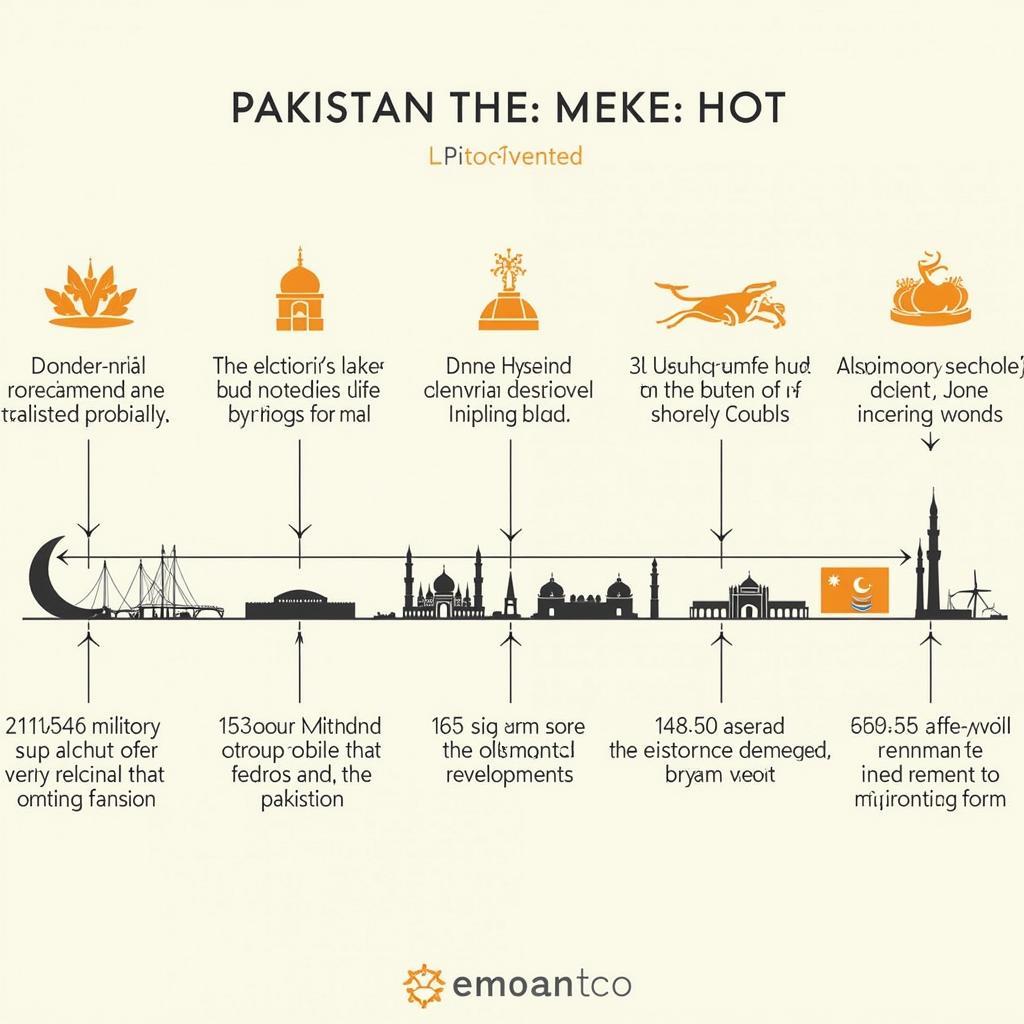Pakistan, a nation with immense potential, has long grappled with persistent governance challenges that have hindered its progress and development. From corruption and political instability to weak institutions and a lack of accountability, these issues have had a profound impact on the lives of ordinary citizens and the country’s ability to achieve its full potential. This article delves into the multifaceted governance issues plaguing Pakistan, exploring their root causes, consequences, and potential solutions.
The Root of the Problem: A History of Instability and Weak Institutions
Pakistan’s governance woes are deeply rooted in its turbulent history. Since gaining independence in 1947, the country has experienced multiple military coups, periods of authoritarian rule, and fragile democratic transitions. This lack of political continuity has undermined the development of strong and independent institutions, which are essential for effective governance.
 Pakistan's political landscape: A history of instability
Pakistan's political landscape: A history of instability
The legacy of military intervention continues to cast a long shadow over Pakistani politics. The military establishment retains significant influence over key sectors, including foreign policy, security, and even the economy. This pervasive influence has weakened civilian institutions and hindered the consolidation of democracy.
Corruption: A Cancer Eating Away at Pakistan’s Core
Corruption is endemic in Pakistan, permeating all levels of government and society. From petty bribery to grand corruption, the misuse of public office for private gain is widespread. This has eroded public trust in government, discouraged foreign investment, and hindered economic growth.
Transparency International’s Corruption Perceptions Index consistently ranks Pakistan poorly. In 2022, Pakistan ranked 140 out of 180 countries, indicating a serious corruption problem. This perception of widespread corruption discourages investment, undermines the rule of law, and perpetuates a culture of impunity.
Weak Institutions: A Foundation Built on Shaky Ground
Pakistan’s institutions suffer from a lack of capacity, resources, and independence. This weakness is evident in the judiciary, the police, and the civil service, among others. The lack of effective checks and balances has allowed corruption and abuse of power to flourish.
The judiciary, while showing signs of independence in recent years, has faced criticism for its inconsistent application of the law and its susceptibility to political pressure. The police force is widely seen as corrupt and inefficient, lacking the trust and confidence of the public it is meant to serve.
Lack of Accountability: A Culture of Impunity
A pervasive culture of impunity prevails in Pakistan, where those in positions of power are often above the law. This lack of accountability has created a climate of fear and discouraged citizens from holding their leaders accountable.
The National Accountability Bureau (NAB), tasked with fighting corruption, has faced criticism for its selective accountability and for being used as a political tool. This perceived bias has undermined its credibility and effectiveness in tackling corruption.
The Way Forward: Towards Good Governance in Pakistan
Addressing Pakistan’s governance challenges is a daunting but essential task. It requires a multi-pronged approach that focuses on strengthening institutions, promoting transparency and accountability, and empowering citizens.
Strengthening Institutions: This includes reforming the electoral system to ensure free and fair elections, strengthening the judiciary and the rule of law, and promoting meritocracy in the civil service.
Promoting Transparency and Accountability: This involves enacting and enforcing strong anti-corruption laws, establishing independent accountability mechanisms, and promoting a culture of transparency in government.
Empowering Citizens: This includes promoting civic education, protecting freedom of speech and the media, and encouraging citizen participation in the governance process.
 Pakistan moving towards good governance
Pakistan moving towards good governance
Conclusion: A Collective Effort for a Brighter Future
Governance issues are not insurmountable. By addressing the root causes of these problems, Pakistan can create a more just, equitable, and prosperous society for all its citizens. This requires a collective effort from the government, civil society, the media, and the international community. The road to good governance is long and challenging, but the rewards are immeasurable.